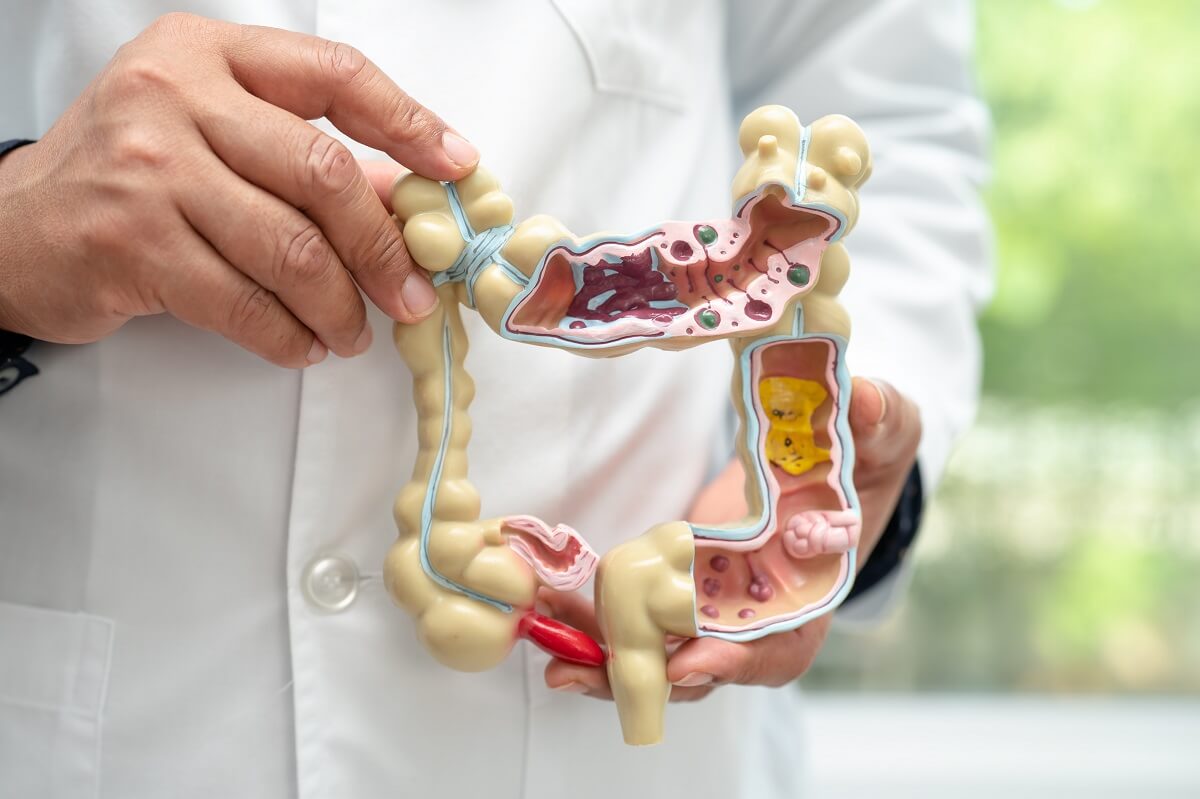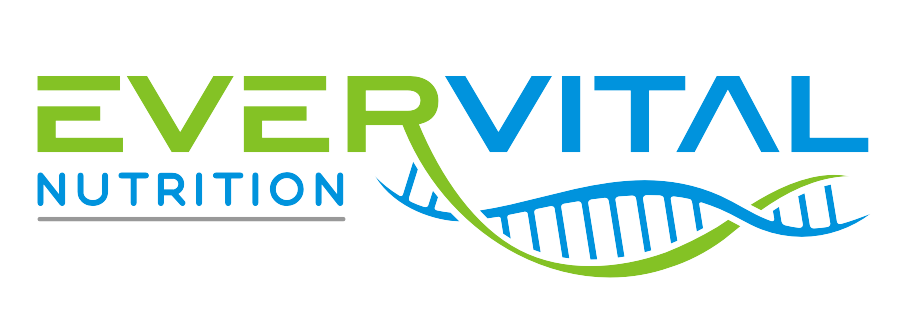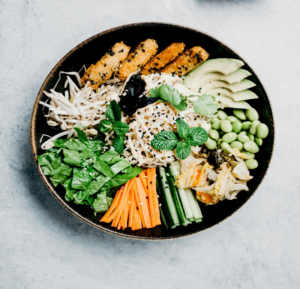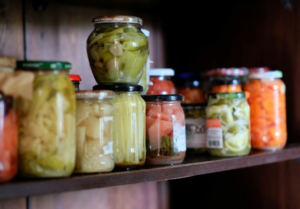
Small intestinal bacterial overgrowth, or SIBO, is a super common condition that affects your gut health, and is often misdiagnosed or missed completely by practitioners who aren’t familiar with the varied symptoms and treatment.
Many patients with IBS also have SIBO, and there is a connection between hypothyroidism and SIBO as well, which confounds things further.
How to Diagnose SIBO
If SIBO is suspected, there are a couple of options as far as diagnosis goes:
- Breath testing, a non-invasive test that measures the amount of hydrogen, hydrogen sulfide, or methane that is present in your breath after drinking a special glucose/water mixture, and
- Small intestine aspirate and fluid culture, and while it is the gold standard for diagnosis, in order to obtain the fluid sample, doctors pass a long, flexible tube down your throat and through your upper digestive tract to your small intestine where they obtain a fluid sample that is tested for bacteria. The latter option is, of course, more invasive and expensive than the breath test, which is more common.
The problem with a simple breath test is this… ok, so now you know, for example, that you have methane SIBO, right?
You still don’t know which bacteria are responsible, or if there are fungal overgrowths present as well, and you don’t know if the functioning of your digestive organs, the pancreas, gallbladder, and liver, is optimal.
All you know is that bacteria in your GI system are overproducing methane gas.
And while GI-MAP testing is technically not used to diagnose SIBO, comprehensive gut microbiome testing gives you a much more thorough and accurate picture as to what exactly IS in your gut and how well those digestive organs are functioning, what the status of your gut lining is, and how your immune system is managing the overgrowth of bacteria.
More data points = more specific treatment protocols and faster recovery and healing so you can get back to life.
Symptoms of SIBO
If you suspect small intestinal bacterial overgrowth (SIBO), there are some of the many symptoms associated that may help you to determine whether this is a potential issue. They can include:
- Abdominal pain and distention
- Constipation that is resistant to laxatives and herbal remedies
- Diarrhea
- Gas and bloating, often severe
- Reflux or GERD
- Food sensitivities
- Insane sugar cravings
- Brain fog
- Fatigue
- Weight gain or loss, usually unplanned
- Joint or muscle pain
- Anxiety or depression
- Nausea or vomiting
- Nutrient malabsorption
- Loss of appetite
- Oily, smelly, pale-colored, floating stools
- History of acid blocking or proton-pump inhibitor meds
SIBO symptoms sound fun, don’t they?
The problem with this list of symptoms is that it’s really general. Similar symptoms can be caused by H. pylori, histamine-producing bacteria, food intolerances, SIBO or even some parasites.
This is why we test. Always.
And you can see from our list of potential symptoms, your gut health impacts your entire body, and the foods you eat and whether they allow harmful SIBO-related bacteria to prosper in your small intestine, where there are usually few bacteria, is a huge factor in how you feel on a daily basis.
And you can feel like utter garbage with SIBO. Complete. Garbage.
Treat Symptoms or Treat the Root Cause
Sure, you can slap band-aid after band-aid on each and every symptom.
Head to your local conventional practitioner and this is likely what the recommendation will be.
Got reflux? Here’s a prescription for some omeprazole, the world’s favorite overprescribed proton pump inhibitor (PPI).
Constipated? Here’s a prescription for Linzess and try a low FODMAP diet.
These are band-aids… temporary fixes to the symptom, but they do nothing for the actual cause of the symptom.
We prefer to stop symptoms at the root cause, and luckily, we can test for the presence of bacteria and fungi, like Candida, with a comprehensive gut microbiome test.
You’ll know if SIBO is an issue for you as well as any co-infections that are present.
These co-infections can alter your treatment for SIBO, depending on which bacteria are present, so it’s really great information to have before you decide on a treatment option.
People often have recurrent SIBO, and this is because they didn’t actually fix the root cause AND fix their gut environment.
It’s one thing to actually kill the bacteria responsible for the overgrowth, but you also have to return the gut environment itself to an optimal state or those bad guys can easily regrow.
This means that you address leaky gut if that’s present (we test for that). It also means that you have an eyeball on stomach acid, digestive enzymes, fat digestion, inflammation… the whole works.
Some of your beneficial bacteria are super picky little bugs, and they will not grow in an environment with inflammation.
You’ve absolutely got to optimize the environment, but first, you have to know it’s a problem.
We test for all this. Every bit of it.
Underlying Causes of SIBO
In a normally functioning small intestine, regular peristalsis, host (that’s you!) immunity, and tightly-controlled pH ensure that harmful bacteria are unable to grow in large quantities.
Any abnormalities in food moving through the digestive tract, pH, or the immune system and, boom… you’re perfectly set-up for potential bacterial overgrowth in the small intestine.
A considerable list of medications and underlying medical conditions that we see affecting the gut most often are: antibiotics, proton-pump inhibitors, and acid reducers, including antihistamines.
Helicobacter pylori
Chronic H. pylori can impact the human body far beyond the classic upper GI signs and symptoms (burping, reflux, gas, nausea, loss of appetite).
Even more impactful, H. pylori changes the stomach pH to be LESS acidic and it also alters your immune response to everyday challenges.
The net effect of chronic H. pylori infections is usually an increase in stomach pH, which can contribute to dysbiosis (overgrown harmful bacteria) in several ways.
- A low pH (acidic environment) is required to prevent bacterial entry into the GI tract and is also required to release adequate digestive enzymes.
- Increased pH in the proximal small intestine favors crazy bacterial growth and may predispose patients to dysbiosis, especially in conjunction with constipation.
- Deficiency of hydrochloric acid can also result in undigested proteins and nutrients, which can provide a food source for bacterial growth.
Digestive Insufficiency
Insufficient stomach acid (hydrochloric acid or HCl), digestive enzymes, or bile secretion can predispose patients to harmful overgrowth of bacteria as well.
Significant bacterial growth can also contribute to carbohydrate and protein malabsorption by degrading brush border enzymes in the small intestine, so food is not able to be absorbed properly and your SIBO bacteria can feed on it.
Low Immunity
Treating an over- or under-active immune response can impact how well your body responds to treatment of SIBO.
An optimally functioning immune system is a requirement for a healthy microbiota balance as it identifies and eliminates harmful organisms.
Pathogenic Bacteria
It is quite common to find low levels of pathogenic bacteria in patients with SIBO.
Pathogenic bacteria are not just your run-of-the-mill bad guys. Nope.
These are the bad guys that either do more damage than normal or they stick around longer because they’re stubborn and difficult to eradicate. Think Salmonella or C. diff.
You don’t want these guys.
Yeast / Fungi
Candida and other fungal infections can be involved in small intestinal dysbiosis. It’s so common that it’s being called SIFO, or small intestinal fungal overgrowth and it often occurs right alongside SIBO.
Symptoms associated with a fungal infection have many commonalities with SIBO symptoms, and… the presence of fungi with SIBO makes it that much more difficult to clear.
Parasites
As if bacterial overgrowth wasn’t enough, parasites are commonly found alongside bacterial dysbiosis as well.
Pathogenic and opportunistic parasitic infections can alter immunity to favor bacterial growth, which sucks, especially those parasites that do more damage, like Giardia.
Avoid that one like the plague.
Deficient Normal Flora
Beneficial bacteria play a significant role in your overall GI health, including motility, metabolism, gut barrier function, and immunity. They serve as protectors of your gut, and believe me, you want a strong army of protectors.
Usually, your beneficial bacteria hang out in the colon, and when they are deficient or missing altogether, we see immune system dysfunction, nutrient malabsorption, inflammation, and GI symptoms (such as irregular stools, gas, and bloating).
Decreased bacterial diversity is also a common finding in SIBO, low counts of good guys and not enough various types of them as well.
GI Lining Dysfunction
SIBO and gut lining dysfunction can operate in a really crappy and vicious cycle. Bacterial overgrowth has been shown to result in damage to the gut lining epithelial cells, which can contribute to deficient production of small intestine brush border digestive enzymes.
This deficiency frequently leads to undigested carbohydrates and proteins, which are likely to provide food for harmful bacteria to overgrow in the small intestine.
What to Eat If You Have SIBO
What you eat has a definite impact on whether harmful bacteria thrive or not, and the same is said for SIBO. Diet is critical.
Here’s why…
The overgrown bacteria in your small intestine love certain foods and they use these foods to grow and thrive in your small intestine, where they shouldn’t even be in the first place.
Normally, when you eat food, bacteria ferment that food and produce certain substances, or metabolites, from the food. All good and well when that happens in your colon, but in your small intestine, that fermentation means you suffer with symptoms.
A whole food, plant-forward diet will work wonders in regards to how you feel on a daily basis while you are treating SIBO.
Adequate good-quality protein is equally as important. Meals should be spaced out and snacks should be limited, since constantly feeding yourself is constantly feeding harmful overgrown bacteria as well. No bueno.
SIBO Foods
Removing the SIBO-promoting foods from your diet and from your sight can make adherence and meal prep a bit easier… just hide them in a box on the top shelf of the pantry and no one’s the wiser.
There’s a lot of controversy as to whether you can “starve” out these harmful bacteria that are prevalent in SIBO.
While you will not be able to use diet alone to treat SIBO, not eating the foods that these bacteria love can help to reduce their numbers.
But there is no “starving” them out. You will need herbal or pharmaceutical treatment to heal SIBO.
Eat This…
Foods to EAT while treating SIBO overgrowth include:
- Protein – the highest quality you can afford
- Chicken
- Turkey
- Wild game
- Lamb
- Beef
- Bison
- Seafood
- Eggs – choose organic, free-range if possible
- Hemp or pumpkin seed protein powder
- Tofu
- Whey protein powder
- Veggies – as tolerated, lower starch veggies are best
- Cruciferous veg like broccoli, Brussels sprouts, cauliflower
- Carrots
- Celery
- Cucumber
- Green Beans
- Greens – arugula, endive, mustard greens, beet greens, spinach, kale
- Mushrooms – avoid if you have fungal overgrowth
- Squash
- Tomatoes
- Fermented veg – sauerkraut, pickles, etc.
- Fruit
- Berries
- Avocado
- Fat
- Olive oil
- Coconut oil
- Avocado oil
- MCT oil
- Butter, if tolerated
- Nuts/Nut butters
- Almonds
- Pumpkin seeds
- Pecans
- Macadamia nuts
- Pine nuts
- Walnuts
- Pistachios
Skip This…
Foods to AVOID while treating SIBO overgrowth include:
- Protein
- Pea protein
- Rice protein
- Carb-heavy meat alternatives
- Veggies
- Potatoes
- Other higher starch veggies should be very limited
- Fruit – skip higher sugar fruit
- Bananas
- Pineapple
- Mango
- Apples
- Dried fruit
- Watermelon
- Peaches/nectarines
- Candy
- Dairy and non-dairy desserts like ice cream, sorbet, frozen yogurt, etc.
- Minimize all sugars or completely eliminate, including honey and maple syrup
- Yeast breads and gluten-free breads, crackers, snacks, etc.
- Cereal and high carb grains like rice and oats
Treatment Considerations
You have options when it comes to treating SIBO, and the best treatment for you is the one that works for YOU, not someone on your Facebook SIBO group.
You can use anti-fungal pharmaceuticals like Nystatin, antibiotics like Rifaximin, herbal treatments, or a combination. If you choose to use a pharmaceutical, you’ll want to use a biofilm disruptor like black cumin seed oil or bismuth along with your meds.
Talk to your healthcare practitioner about the best option for you that takes into account your level of bacteria, both beneficial and harmful, and overall health status.
Bad Guys
Gut health testing can determine which harmful bacteria, parasites, or fungi are contributing to your specific version of SIBO, and it can be quite beneficial to know this information so that your treatment can be customized accordingly.
If you’re the type of person that likes to know the names of some of the more common bad guys, this is for you:
- Salmonella
- Giardia
- E. coli
- H. pylori
- Bacillus
- Enterococcus faecalis
- Enterococcus faecium
- Morganella
- Pseudomonas
- Staphylococcus spp.
- Staphylococcus aureus
- Streptococcus spp.
- Methanobacter spp.
- Citrobacter spp.
- Citrobacter freundii
- Klebsiella
- Proteus
- Candida
- Blastocystis hominis
- Dientamoeba fragilis
- Endolimax nana
Best SIBO Treatments
Herbal treatments can be as effective as antifungal medicines, but they typically take a little longer to work. The upside is that there is usually less impact to your beneficial bacteria and gut environment as a whole.
This can be really important if your gut microbiome test shows very low beneficial bacteria at the onset. You may want to support these guys prior to going on an all-out killing spree.
Herbs for SIBO
Some very effective botanical herbs that work wonderfully when taken in concentrated supplement form to eliminate bacteria, fungal, and parasitic overgrowth are:
- Black walnut
- Licorice root
- Oregano oil
- Garlic
- Thyme
- Clove
- Grapefruit seed extract
- Green tea extract
- Berberine
There are many combo products that contain effective doses of several of these herbal components. I love Candibactin AR/BR and Microcidin AF.
Nutraceuticals
Nutraceuticals are products that are derived from food sources with extra health benefits in addition to the basic nutritional value found in foods.
For example, you’ve probably all heard of the potential health benefits of red wine, right? Those benefits are due to the antioxidant properties of resveratrol… that’s a nutraceutical.
In the case of SIBO, these nutraceuticals act to support healing of the gut itself or the clearance of harmful organisms. Some effective nutraceuticals include:
- Sulforaphane
- Resveratrol
- Propolis
- Caprylic acid
- Undecylenic acid
- Vitamin D
- Zinc
- L-glutamine
Other Supportive Ingredients
Besides the food you eat and the herbal supplements/nutraceuticals, many other ingredients can support your gut environment. These include:
- Probiotics, especially L. reuteri and S. boulardii
- Post-biotics such as butyrate if you are low in species that produce it
- Polyphenols, always and forever my favorite gut healing ingredient
- Digestive enzymes, especially those supporting the brush border
- Ox bile, if fat is present in your stool
- Betaine HCl, unless H. pylori is present as well
- Liver support, if needed
- Immunoglobulins
In clinical practice, SIBO is rarely just SIBO. In addition to the underlying causes discussed above, bacterial overgrowth is often accompanied by other gastrointestinal issues.
When the GI tract is treated as a dynamic, multi-faceted system, patients are more likely to achieve remission and lasting relief from their SIBO-related gastrointestinal symptoms.
Confused by all this and just want to know if your gut health symptoms are due to SIBO and how to fix them? It’s super easy to test at home! Contact EverVital Nutrition and let’s chat about how to move forward! Make this the year you get healthy!











